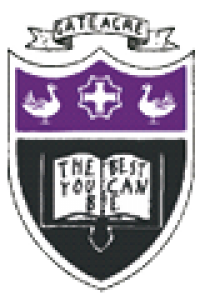Our Intent, Implementation & Impact
Intent: Our purpose and ambition
In Computing we ensure that every student learns how to use technology effectively and safely. The Computing curriculum is designed to recognise prior learning, provide first hand learning experiences, allow all students to develop interpersonal skills, build resilience and become creative and critical thinkers.
Online safety is built into the curriculum for each year group to ensure all students learn and understand how to use technology safely and be aware of how stay safe when online. Students learn how to model real life situations and as a result are able to design, create, test and evaluate their solutions to solve problems and this will give them a solid base for future life and study skills. As part of the Computing curriculum, students also develop their knowledge and understanding of algorithms and computational thinking skills to solve problems as well as understanding how technology can be used to proactively help current issues that impact on modern society.
We aim for all our learners to enjoy their Computing lessons through a variety of exciting tasks designed to engage and provoke thought. Learners will feel able to contribute to the many class discussions and be able to look at future careers and opportunities available through the study of Computing. We support our learners in ensuring they develop the necessary digital life skills needed to apply themselves effectively and safely, whether this be in school, sixth form, college, university, the workplace or at home.
Implementation: Design, Pedagogy and Assessment
Sequencing
The Computing department has carefully planned and structured each unit (and lessons) so that all students develop their skills, knowledge and understanding in Computing. Knowledge is delivered and accumulated in a logical, cumulative progression.
Building Blocks
Key strands and recurring themes are identified. The big ideas are made explicit to students and built on what Willingham calls ‘the unifying ideas of each discipline’.
TEEP
All lessons are delivered using the TEEP cycle and the underpinning elements of good instruction. The latest research and principles that form part of the science of learning are bolted on to this model.
Retrieval Practice
In Computing, students are given the opportunity to revisit content and their work. Interleaving is used. Strategies such as low stakes quizzes, consistent verbal feedback and knowledge organisers also support our students.
Differentiation & Challenge
All students are challenged. Differentiation does not take the form of ‘bespoke’ worksheets. Difficult skills, concepts are broken down, scaffolded and modelled according to Rosenshine’s principles.
Assessment & Feedback
Assessment is clearly focused and varies depending on purpose. Instant verbal feedback allows students to make rapid progress. Assessments are planned to ensure high validity and reliability. They feedback into teaching where appropriate. Feedback is focused.
Literacy & Numeracy
There is a clear focus on learning new concepts. Disciplinary literacy techniques are used to explicitly develop students tier one and tier two vocabulary. Opportunities to develop numeracy are taken.
Cultural Capital and SMSC
Opportunities are planned for within all schemes of work for students to advance their cultural and social capital and develop as individuals on a spiritual and moral level. This is explicit to students.
Linking Curriculum to Careers
At least twice a term, students are given the opportunity to analyse a career linked to individual topics within the scheme. Time is given for students to reflect on their potential career options/pathways.
IMPACT: Attainment, Progress, Knowledge, Skills and Destinations
The impact of our curriculum will be assessed each year using the different types of data available to us. This data will include exams results analysis, examiners reports, emerging research, QA, student voice and staff voice. We also seek to collaborate with colleagues from different centres and keep up to date with the latest studies and contemporary events linked to our subjects. The acquisition of knowledge should be modelled for students by staff.

